Basic Arithmetic Normal Addition & Subtraction Worksheets for Ages 3-9
6 filtered results
-
From - To
Discover our engaging Basic Arithmetic Normal Addition & Subtraction Worksheets designed specifically for children aged 3-9! These worksheets offer a fun and interactive way for young learners to master foundational math skills. Each worksheet features colorful illustrations, simple problems, and stimulating activities that make learning addition and subtraction enjoyable. Whether your child is just starting or needs extra practice, our worksheets cater to various skill levels and learning styles. Encourage confidence in math through play and exploration, laying the groundwork for a lifelong love of mathematics. Perfect for home or classroom use, these resources are an essential tool for early math education!
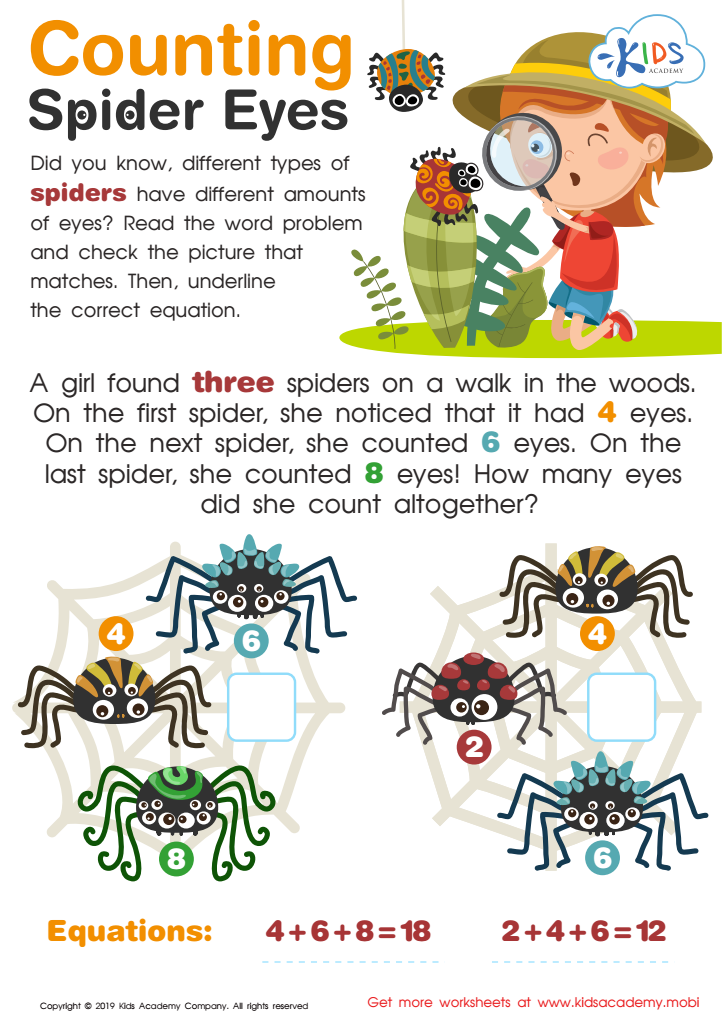

Counting Spider Eyes Worksheet
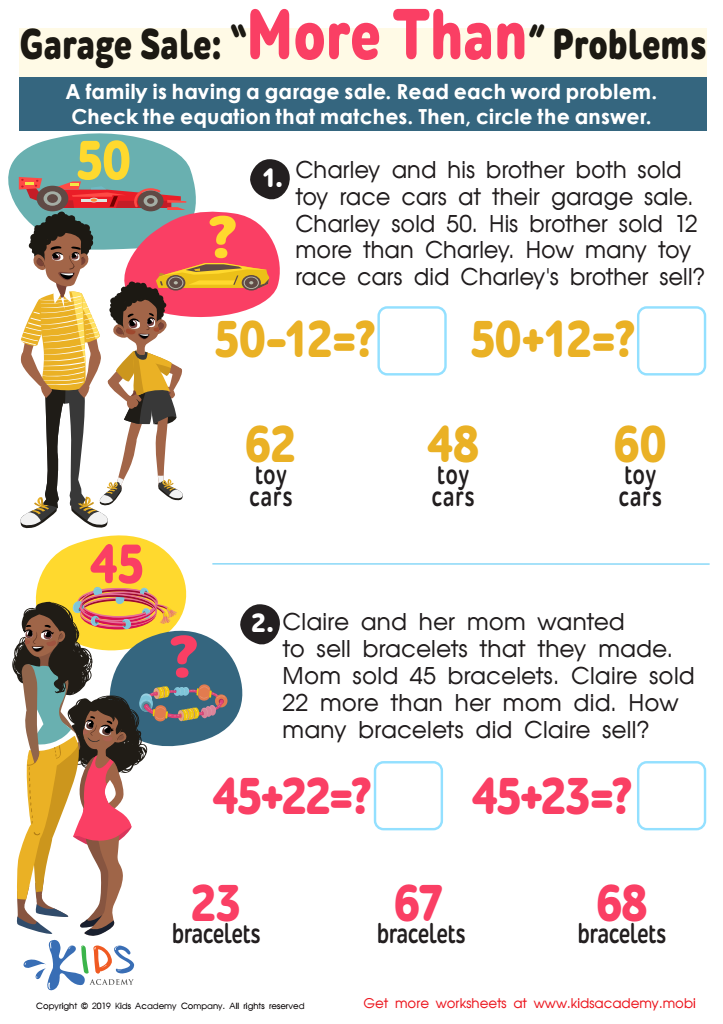

Garage Sale - More yhan Worksheet
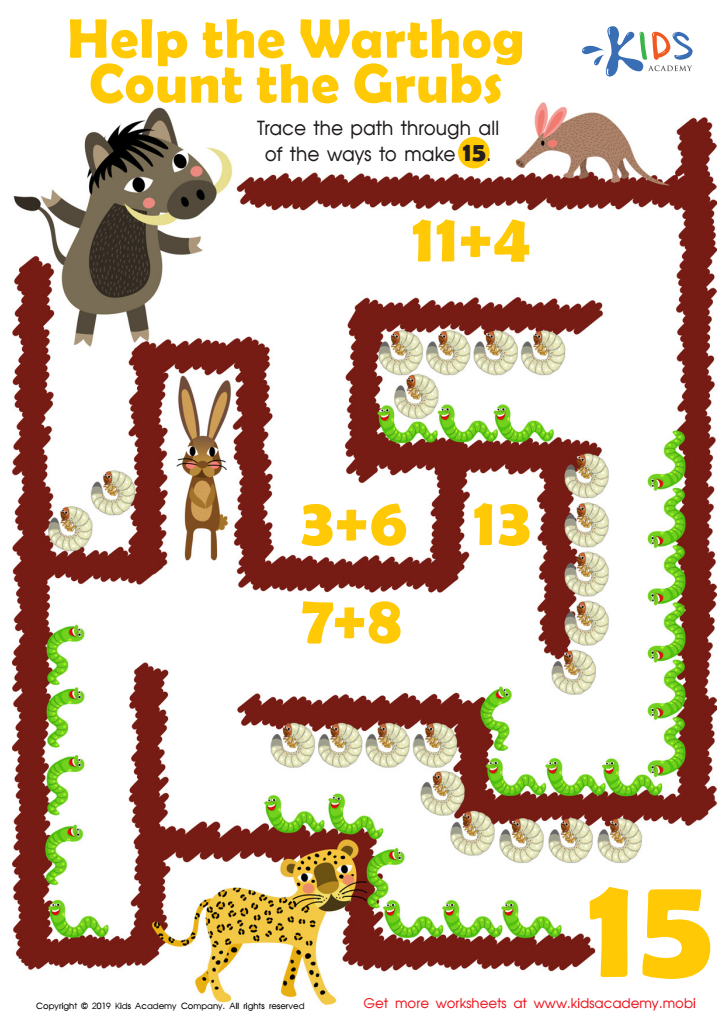

Help the Warthog Count the Grubs Worksheet
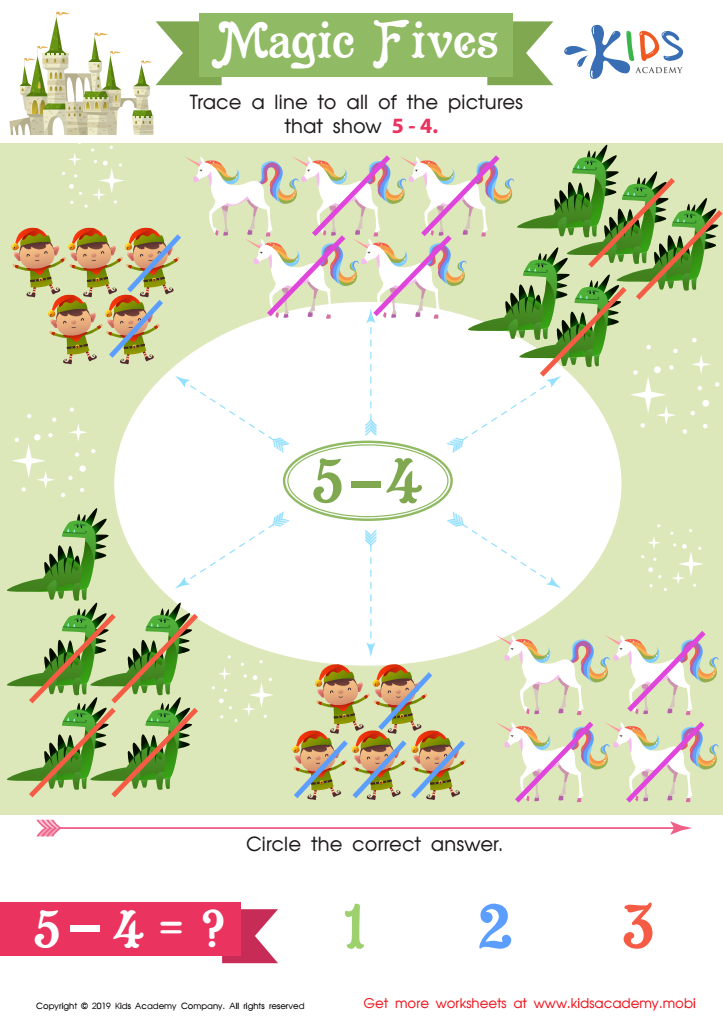

Magic Fives Worksheet
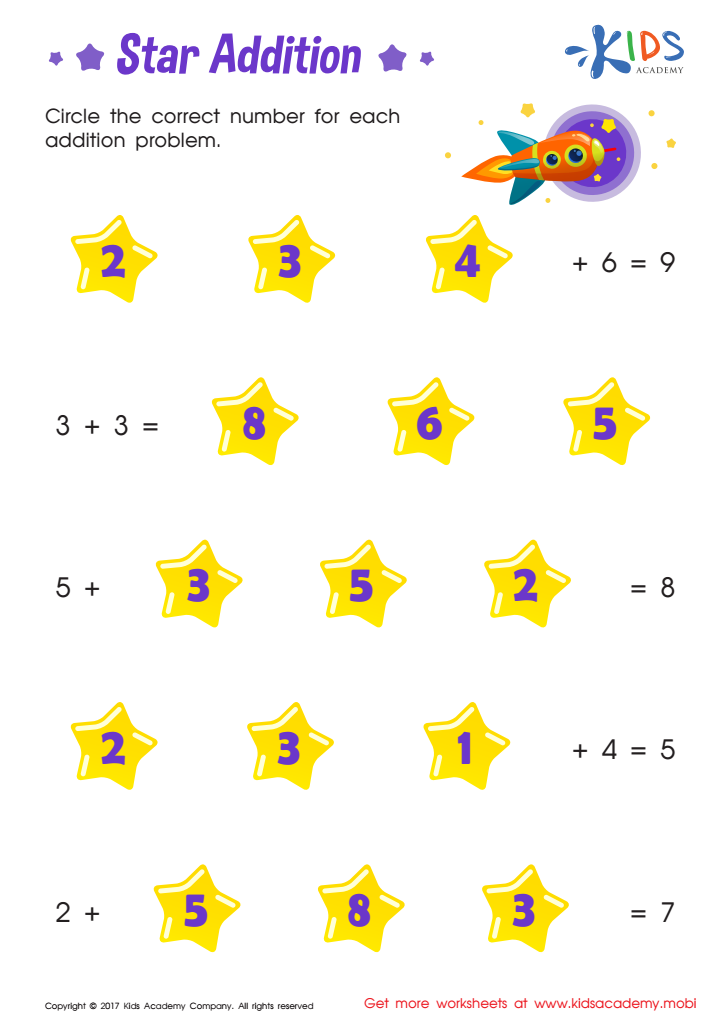

Star Addition Printable
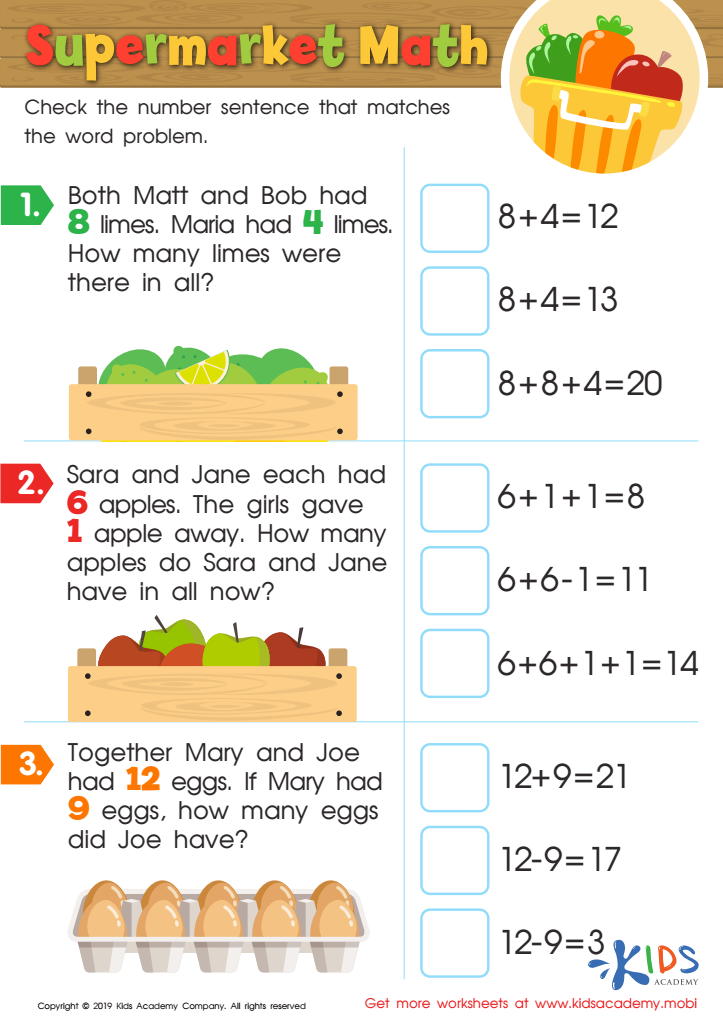

Supermarket Math Worksheet
Parents and teachers should prioritize basic arithmetic, specifically normal addition and subtraction, for children ages 3-9 for several foundational reasons. First, these skills are the bedrock of mathematical understanding, critical for subsequent educational stages. Introducing addition and subtraction at an early age helps children grasp number concepts and relationships, fostering logical thinking and problem-solving abilities.
Moreover, mastery of these basic operations boosts children's confidence. When they successfully navigate simple math problems, they build a positive self-image that can inspire them to tackle more complex challenges in the future. These skills also cultivate analytical reasoning, which is invaluable beyond academic contexts, affecting every aspect of life where decision-making is required.
Furthermore, early exposure to arithmetic promotes cognitive development. Engaging activities such as counting objects and playing games challenge young minds, enhancing their concentration and memory. Socially, learning basic arithmetic can provide opportunities for collaboration and communication, allowing children to share strategies and work together.
Investing in arithmetic skills at a young age sets the stage for lifelong learning and success. Knowing the significance of these competencies fosters healthy educational environments, aligning parents and teachers toward shared goals in supporting children’s growth and development.

 Assign to My Students
Assign to My Students
















